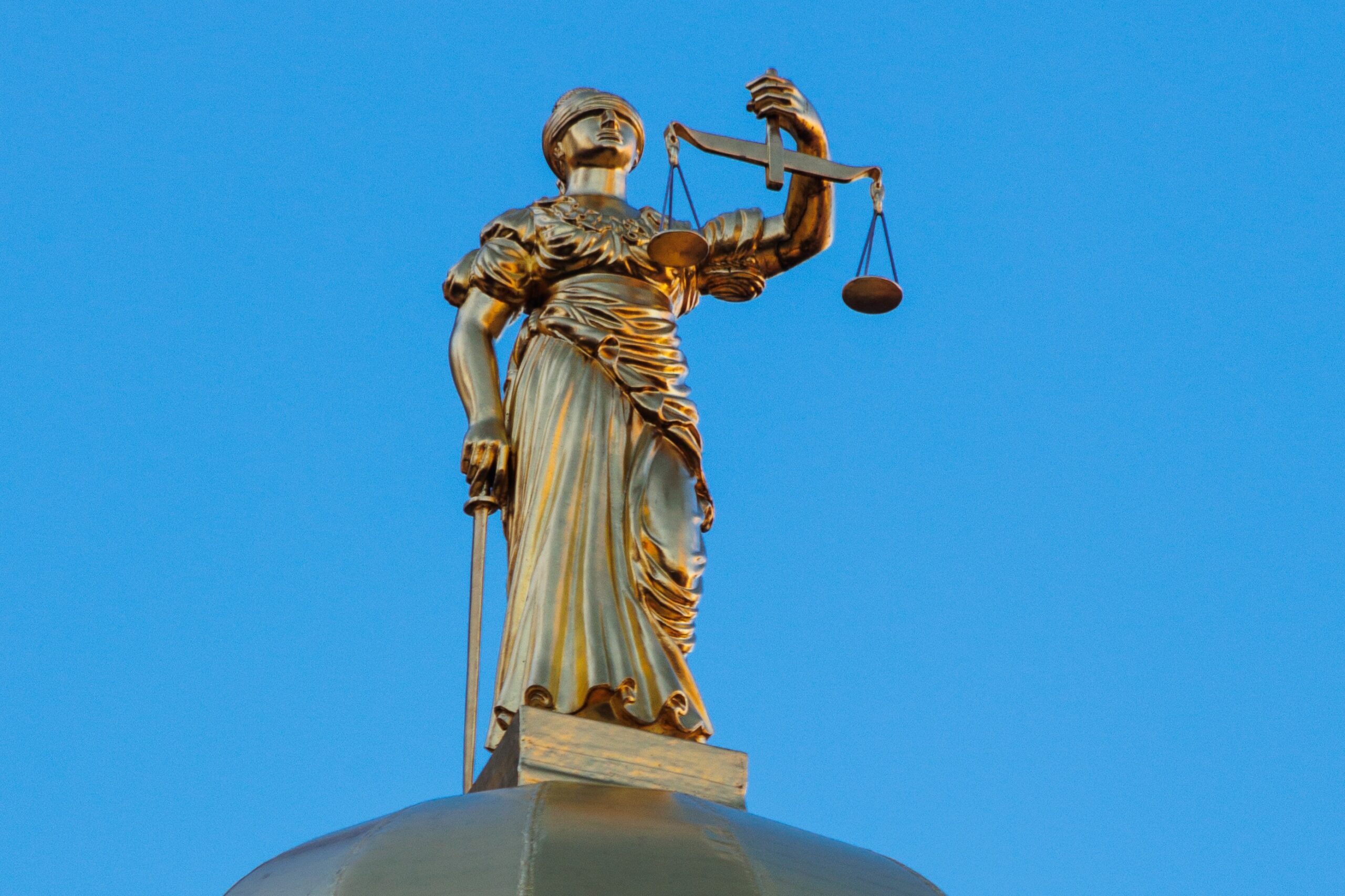Once upon a time, there was a strange belief that the importance of a “free press” lay not only in the existence of independent, privately supported reporting; another value was that of providing a platform for healthy, civil discourse spanning a variety of topics and opinions.
Well, such a value seems to be abhorrent to certain readers of The Western Standard, among the best of English-speaking news outlets in Canada. On August 17, the Standard published (not for the first time) a contribution by Richard Dur, “Executive Director of Prolife Alberta and an award-winning political consultant with experience on campaigns across Canada.” The article addresses the tragic yet longstanding problem of unsuccessfully aborted babies being left to die in, of all places, Alberta. Dur writes in the context of Premier Danielle Smith’s laudable actions regarding government expenses: “When she learned that Albertans could no longer see what officials were billing taxpayers, she called it wrong, promised to investigate, and vowed to fix it.” Dur then takes a critical turn:
But for twenty-five years, she has known about something infinitely worse: babies born alive after failed abortions in Alberta hospitals — and left to die.
In 2000, as a Calgary Herald columnist, Smith called late-term abortion a “horrific practice.” She was right. But now, as Premier, the horror continues. …
If Premier Smith can act swiftly to fix receipts, why has she stood still while newborns are left to die? After all, it’s Alberta Health Services (AHS) policy — under her government — that permits it (as confirmed by two separate AHS documents, here and here).
Dur’s words, however, were too much for some readers who decided to shoot the messenger in the comments section. To choose just one example: “Not sure why WS allowed this one to go to print. Free speech is one thing, but Dur trying to connect these two ideas is from outer space.” Another: “WS. Desperate to fill pages, or the editor sleeping in today.” As to be expected, Dur himself was not free from ad hominem attacks. One comment is exceptionally fierce:
Richard Dur is an idiot. He attacks Premier Danielle Smith for inaction on abortion. Except that abortion is under federal jurisdiction. Any attempts to currently make any changes to abortion will cause more problems with Ottawa. Danielle Smith is currently embroiled in disputes with Ottawa over its incursion into provincial jurisdiction. To go against abortion would only make her look like a hypocrite, attack Ottawa over involving itself in provincial matters and then embroil herself in federal matters. Please Mr. Dur grab a brain.
There are a number of revealing aspects in this comment. First of all, as Dur explains in another article, “this issue isn’t about regulating abortion itself; it addresses what happens after an abortion… And here’s the thing: this isn’t about federal powers or jurisdiction either. Alberta doesn’t need federal permission to fix this.” He even mentions that Ontario (which has understandably gained the ire of Western Canadians) has, at least, some protection for babies who are the victims of failed abortions. “If Alberta wants to show it’s serious about more Alberta, less Ottawa,” he concludes this previously published article, “it could start right here — by doing what Ottawa refuses to do: protecting its most vulnerable children. Because the choice is simple: we either look the other way, or we act.” It is worth mentioning that various Republicans have waged a war for the protection of such born-alive babies in the United States. For Western Canadian politicians, however, this does not seem to be on the priority list, let alone regulating abortion.
Dur’s article and the negative reactions to it highlight a moral dilemma among us Western Canadians, separatist or not, who desire genuine opposition to Ottawa’s overreach: Whither babies left to die? Whither the unborn? Whither healthy marriages and families? Should so-called “social conservatism” be put on the back burner while we fight for sorely needed constitutional change? If so, in what manner and for how long? Until equalization payments end? Until gun rights are respected? Until immigration is curtailed? Until we achieve complete independence? When, when?
This is by no means the first time that pro-life and pro-family issues have been wanting in “pro-West” Canadian politics. In 2021, the Standard posted a short letter from a British Columbian who bemoaned the hostile stance of the Maverick Party towards social conservatives:
A party that, at its core, is supposed to be about providing a voice to the West, needs to embrace all Western ideals, including pro-life values and pro-traditional marriage values.” The writer did not fail to mention the electoral benefits of supporting such positions: “The Mavericks have not shown either the temerity or the confidence to embrace the values necessary for sustained electoral success.
In my home province, the BC Conservative Party and the newly formed OneBC Party suffer from the same cowardice. Sure, they may talk about sex education and parental consent and the like, but they hardly dare to go further. Such behaviour never ceases to amaze me since time and time again it has been shown that self-proclaimed “conservatives” can fail to win elections when they alienate social conservatives (The federal Conservative Party of Canada since 2015, and perhaps even before, is a case in point).
Western Canada is as alive as it has not been for a long time. Why? Because it has one, two, or three premiers who have the brains to do what should be considered elementary to any politician seeking to be popular or successful among Western Canadians. Given the crippling economic hardships and flat-out injustices perpetrated by the Trudeau and Carney governments, the idea of complete, all-out separatism is looking very attractive. And yet, there is this bloody elephant in the room. If we want to lay the blame for the slaughter of children (as well as the assaults on marriage and sexuality) solely at Ottawa’s feet, we show ourselves to be blind and pitiful. It would comforting to think that Members of Parliament from Western Canada have always stood boldly, shoulder to shoulder, for the victims of failed abortions, let alone the unborn… but this is far from true. Regardless if one considers oneself a separatist, each of us in Western Canada must ask ourselves this question: Would the rights of the unborn and the sanctity of marriage be significantly protected in an independent West? If the answer is no, God have mercy on us.
To achieve complete independence or necessary constitutional changes for Western Canada, much time, effort, resources, and prayers will be required from average citizens. But let us also ask ourselves the following questions:
How active were we in the defense of life and family, even before Trudeau (if one can remember Canada before 2015)? How much money did we put towards pro-life causes or political leaders during comparatively better economic situations? How many prayers have we offered for the protection of life and family in Canada? It has long been fashionable for conservative Canadians to bemoan the majority of Canadians as being lazy sheep. That may be true, but I fear a greater tragedy has been overlooked: The overreaching policies enacted by Ottawa have been able to continue because of the inaction and division of the Canadian right from coast to coast. As one reader thoughtfully commented at the Standard, “Political apathy is probably our biggest enemy, not the global elite.”
Am I urging Western Canadians to simply give up our fight with Ottawa because we are hopelessly amoral? Not at all. If, however, we value integrity, honesty, consistency, courage, and, most of all, the blessings of Almighty God upon our efforts, some basic self-reflection is in order. To assist in this, there are various authors living and deceased I could recommend such as Sir Joseph Pope, George Grant, Lionel Groulx, Donald Creighton, John G. Diefenbaker, William Gairdner, Preston Manning, C.P. Champion, James W.J. Bowden, John Pepall, John Robson, and others. There are, however, two books I especially urge my fellow Western Canadians to, at least, thumb through: A Declaration of Dependence (yes, you read that correctly) and Communism and the Conscience of the West. Their wisdom is as timely as ever for those of us oppressed by an increasingly crooked and ridiculous regime in Ottawa, though they were written in 1941 and 1948 respectively for an American audience. While Catholics especially may find these books of value, the famous Fulton J. Sheen wrote for Catholics, Protestants, Jews, and anyone who sought to truly understand the crises of their day.
A Declaration of Dependence was published during the early years of World War II. Communism and the Conscience of the West was published just as the Cold War was heating up. Sheen never advocated that American and the Western nations abandon their opposition to Nazism, Fascism, and Communism. But he castigated his fellow Americans and others who behaved so self-righteously against totalitarianism while their personal lives demonstrated they had little to no moral compass:
[V]iolence in the past was based upon a universal moral judgment, such as a violation of justice, or the rights of God. But today, universal moral judgments are ignored. What proves it better than the fact that a divorced man who has already broken three marriage bonds is generally the most violent against Hitler for breaking treaties. A particular hatred against a particular opponent becomes the substitute for a condemnation based on a universal valid moral order.
It is telling that Sheen was writing at a time when abortion and same-sex “marriage” were either uncommon or, at least, not trumpeted as goods by Western societies. What would he say to our own day? In a chapter entitled “What Are We Fighting For?” in A Declaration of Dependence, he poses the very question we in the West must ask ourselves:
What we are fighting for depends on what we are living for. Men fight not because they hate, but principally because they love. Now there are three fundamental loves: men may love the material, the economic, or what are generally called possessions; men may love human rights, liberties, order, and justice; and finally, men may love God.
What do we in the West love, aside from gun rights, low taxes, and a healthy economy? Perhaps more importantly, to what degree is our fight with Ottawa framed solely in terms of hate or “anti”-ness? It is certainly possible, of course, that love or “pro”-ness may be bound up with competing forces in our souls. In any case, Sheen’s diagnoses should not be shrugged off in the belief that we are morally superior to the anti-totalitarian Americans of his own day:
Today, violence is grounded not on an affirmation but on a negation. Men are violent not because they love but because they hate. They are “anti” something, whatever it may be, and as a result confuse their hatred of a person with the justice of their own cause. Propaganda agencies in all countries rely more on the necessity of exposing the vices of their neighbors that of cultivating and preserving their own virtues. It is unfortunate that hatred has become a more rapidly unifying bond among nations than love.
Sheen’s description of Americans’ moral judgment should trouble each of our consciences:
America today is too inclined to judge its cause by the wickedness of its enemies rather than by the justice of God. There is no doubt that if we concentrate on the dictators, we are indeed paragons of virtue; a dirty white shirt looks clean on a coal pile. But America will have sunk to a new low in national morality – or, better, amorality – if its norm is relative to criminals rather than to the Absolute, which is God.
With only immense love and concern for my fellow Western Canadians, I must submit to you following rebuke by Sheen. I cannot see how this, published in 1941, does not apply to ourselves: “We are not a Christian nation; neither are we a pagan nation. We are not a God-fearing people as a whole; neither are we godless. We are what might be called ‘neutral.’ We treat God as we might a president emeritus of a university. He has survival value, but he is without authority.”
On top of this, Sheen reminds us that the sins and misdeeds of a nation can be causes of Divine punishment. Are we so good that our numerous sorrows in Western Canada have nothing at all to do with our own actions… or inaction? To be clear, as Sheen writes, this “does not mean that it is a punishment in the sense of being an arbitrary action on the part of God, but in the sense of being an execution of the law of justice… In other words, sin brings adversity, and such adversity is the expression of God’s chastisement of sin, brought about by the action of man himself.” Such an opinion may seem foreign to our contemporary, secular minds but it has been constant throughout history. It is certainly held as fact in the Old and New Testaments but Sheen also quotes both a warning of George Washington when he left the presidential office and a reflection of Abraham Lincoln during the American Civil War. Sheen further quotes churchmen from war-torn and even occupied nations of his own day. I remember only a few voices which cited the utter disregard for life and family in Canada, including Western Canada, during the Covid-19 dictatorships.
Sheen never leads his audience to despair; on the contrary, such criticism is the beginning of the way out of our self-righteous pride: “What shall we do? Make ourselves worthy to be defenders of God’s justice. That means repentance first, then action. Humbly confess that we, too, have contributed some measure to world disintegration, for too many of us have made the economic the end of living rather than its means.” Perhaps most importantly, Sheen look towards the aftermath of a war:
If the only reason we arm is because we hate an enemy, then the spoils of our victory shall be only vengeance. How shall we know what kind of order shall be rebuilt unless we know what we are fighting for?… Victory over enemies is not worth fighting for just to maintain a status quo; it is worth fighting for only if we use the victory to build a new order on different lines, where the victory will win cooperation of the defeated because it is just under God.
Indeed, similar sentiments were voiced by Ryan McMillan in an article entitled, “Independence from what?”, albeit on different topics than Sheen’s: “The goal of an independent Alberta must not be a reprieve for the next 30 years, but rather a society our great-grandchildren will thank us for.” Whether one is among the separatists or, as Brian Giesbrecht writes, “the people who want to see Canada stay together but believe it can’t be successful if the status quo continues”, we cannot afford to limit our gaze to immediate, short-term distractions. We must tackle the hard issues such as constitutional separation or reformation, government programs, and, yes, life and family issues, including abortion. After all, McMillan reminds us that “nothing worth doing” is ever easy. Furthermore, while it may not be necessary to quote scripture during constitutional debates, snubbing God and our religious heritage is not a viable shortcut to victory. As Sheen writes in Communism and the Conscience of the West:
The Western world has been attempting to preserve the fruits of Christianity after having surrendered the roots. It is trying to preserve respect for the dignity of man, human freedom and the inviolability of human rights . . .after having surrendered the spirit which is the foundation of freedom, and after having denied the Creator Who is the Author of our inviolable rights. [Emphasis in original]
Pro-life heroine Abby Johnson once said virtually the same thing to an American audience:
I think gun rights and election integrity and all that is important. I do. But we need to hear more about God… [W]e are too worried about offence in this country. We are too worried about offending our neighbour and we should be 100% worried about offending the heart of God… And the only way to bring back truth, big T Truth, in the conservative movement, is to focus less on diversity and to focus more on Jesus Christ.
Beginning in 1877, the opening prayer in the Ottawa House of Commons included, “we humbly beg in the name and through the mediation of Jesus Christ, our most blessed Lord and Saviour.” In 1994, this invocation was scrapped. Should we be confused by the rapid decline of our once great Dominion of Canada?
Given the problems of Pierre Trudeau’s Charter of Rights and Freedoms, it is astonishing that God managed to sneak into the preamble, “Whereas Canada is founded upon principles that recognize the supremacy of God and the rule of law”. Nevertheless, the phrase is milquetoast compared to the 1960 Bill of Rights created by the great, yet forgotten (and pro-life), Saskatchewan Prime Minister John G. Diefenbaker:
The Parliament of Canada, affirming that the Canadian Nation is founded upon principles that acknowledge the supremacy of God, the dignity and worth of the human person and the position of the family in a society of free men and free institutions;
Affirming also that men and institutions remain free only when freedom is founded upon respect for moral and spiritual values and the rule of law[.]
If we in the West can truly believe and live out what these lofty words should encompass, we are worthy to contend with Ottawa. If we cannot, we deserve condemnation similar to that which Samuel Johnson directed against the American revolutionaries. His words are now well-respected among Americans; we would do well to heed them: “[H]ow is it that we hear the loudest yelps for liberty among the drivers of Negroes?”
Feature Photo: Blind Justice statue on top of the Old State House as seen on December 22, 2023 in Hartford, Connecticut, USA. Kenneth C. Zirkel/Wikimedia CC-BY-SA 4.0











